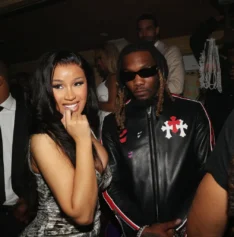Cardi B’s efforts to be able to cash in on her popular phrase, “Okurrr,” was thwarted after the U.S. Patent and Trademark office determined it was a commonplace phrase.
Officials with the USPTO said in paperwork obtained by The Blast that the chirpy term was a “widely-used commonplace expression,” so it did not meet the requirements to be trademarked.

The agency’s website outlines reasons why someone should trademark a device, symbol, word or name.
It states that “federal registration of a mark is not mandatory” but “it has several advantages, including notice to the public of the registrant’s claim of ownership of the mark, legal presumption of ownership nationwide, and exclusive right to use the mark on or in connection with the goods/services listed in the registration.”
But in the declining notice to Cardi, officials said “Okurrr” is “a slogan or term that does not function as a trademark or service mark to indicate the source of applicant’s goods and/or services.” It added the word does not distinguish itself from others that were similar to it.
Plus, when scouring the internet for other uses of the phrase, officials discovered many fans of the rapper had used the term. Add this to the fact that that the Kardashians have been heard using the phrase on their E! reality series “Keeping Up with the Kardashians” as early as 2010, and those at the agency felt they were justified in disallowing the trademark for “Okurrr” to move forward.
But even if the “Press” performer’s famed term were not commonplace, she’d already have been too late to take financial advantage of it. Fans have filed similar trademark applications before Cardi did so in March.
If those fans would have been able to score a trademark on the phrase, however, there would have been a way for Cardi to get the trademark from them. The USPTO says “A registered mark may be assigned and a mark for which an application to register has been filed may be assignable. Certain exceptions exist concerning the assignment of Intent-to-Use applications” and “assignments may be recorded in the USPTO for a fee.”


